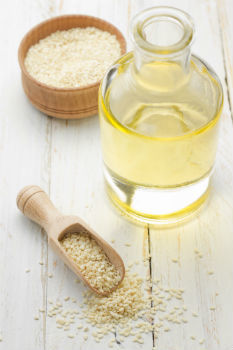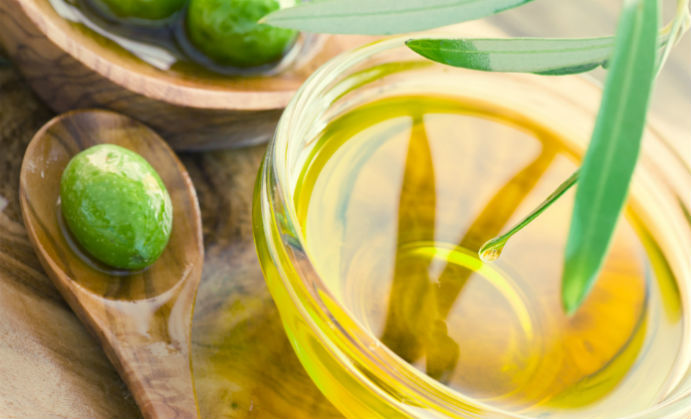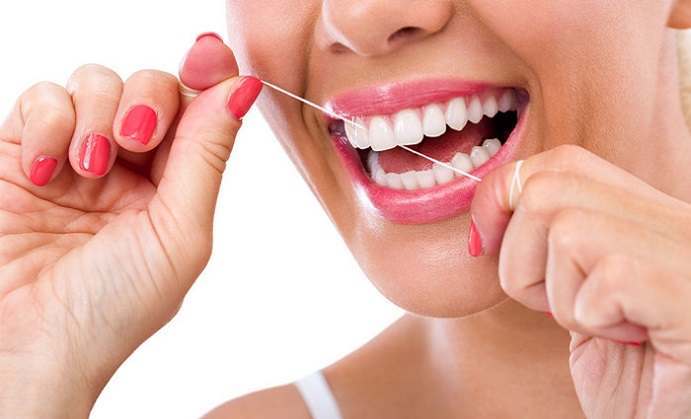Oil pulling or oil swishing is a folk remedy where oil is “swished” (kavala graha) or “held” (snigda gandoosha) in the mouth. Practitioners of oil pulling claim it is capable of improving oral and systemic health, including a benefit in conditions such as headaches, migraines, diabetes mellitus, asthma, and acne, as well as whitening teeth. Its promoters claim it works by “pulling out” toxins, which are known as ama in Ayurvedic medicine, and thereby reducing inflammation. It is an ancient Ayurvedic dental technique that involves swishing a tablespoon of oil in your mouth on an empty stomach for around 20 minutes. This action supposedly draws out toxins in your body, primarily to improve oral health but also to improve your overall health.
 As per Ayurvedic literature, sesame oil is one among many medicinal fluids recommended for daily preventive use and/or seasonal use to reduce dryness (vata dosha) of the mouth and reduce inflammation and burning sensation in the mouth. In case of specific issues, Ayurvedic practitioners might also suggest other treatments such as coconut oil and sunflower oil or other herbalized oils after proper diagnosis of the specific ailment or dosha.
As per Ayurvedic literature, sesame oil is one among many medicinal fluids recommended for daily preventive use and/or seasonal use to reduce dryness (vata dosha) of the mouth and reduce inflammation and burning sensation in the mouth. In case of specific issues, Ayurvedic practitioners might also suggest other treatments such as coconut oil and sunflower oil or other herbalized oils after proper diagnosis of the specific ailment or dosha.
Even after several (limited) studies, the purported mechanism of action of oil pulling therapy is still not clear. The suggestion is that oil provides a surface layer that prevents plaque or bacteria adhering to teeth. It is also suggested that by increasing the secretion of saliva, oil pulling uses the salivary glands in the mouth as a detoxifying organ: the saliva can trap the toxin within the oil particles. It is also suggested that the prolonged and forceful mechanical action could play a part in dislodging bacteria and undigested particles from the deep crevices within the mouth. Oil pulling with sesame seed oil moisturizes gums, which can provide a measure of relief to those suffering from dry mouth. Dry mouth is known to increase bacteria growth.
Dentists remain skeptical of the claimed benefits behind oil pulling. Reliable scientific evidence of the benefits and risks is scarce and American Dental Association states that insufficient research has been done on oil pulling. Rather than oil pulling, the ADA recommends brushing the teeth twice a day, flossing, and the use of an antiseptic mouthwash.
The drawbacks highlighted by medical professionals and experts are:
- Oil pulling cannot replace care from a qualified dentist, and any delays in going to the dentist might make it difficult to treat mouth problems.
- It consumes more time than conventional alcohol-free, antiseptic mouthwashes.
- There is a report of lipid pneumonia caused by accidental inhalation of the oil during oil pulling.
- Coconut oil, in rare cases, can act as an antigenic agent that causes contact dermatitis.
- In addition, according to the ADA, cases of diarrhea or upset stomach have been reported.
- The oil has to be spat into the garbage can, not the sink. Coconut oil can clog the pipes if it solidifies.
Ayurvedic experts warn of negative side effects – if improper technique is used – such as dry mouth, excessive thirst, muscular stiffness, exhaustion and loss of sensation or taste in the mouth.











